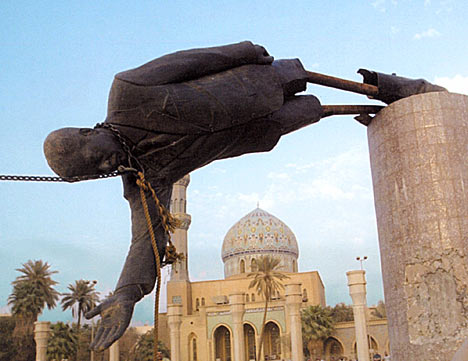From “Why Countries Go Bust,” Adam Davidson’s New York Times Magazine piece about the poverty-reduction theories of superstar economist Daron Acemoglu, an explanation of how we managed to screw up even the post-Hussein Internet access market in Baghdad:
“On April 9, 2003, the day the city was captured, one of the world’s most tightly controlled economies suddenly became a free-for-all. Amid the chaos, many former state functionaries turned into entrepreneurs. Nearly every engineer from the ministry of housing, it seemed, had opened his own construction company. Satellite TVs, once illegal to all but a very small elite, were sold on every major street. Under Hussein, only one company (widely rumored to be monitored by the intelligence service) offered Internet access, and it was incredibly bad and expensive. After it was gone, there were so many new Internet companies that I had far more access options then than I do today in Brooklyn.
Yet the American authorities, who had not planned for this budding free market, all but destroyed it when they gave the bulk of new contracts to large companies outside the country. Often, these outsiders subcontracted to Iraqi firms with close ties to the state’s new political establishment. By the anniversary of the United States invasion, it was clear that economic success would again come from connections and corruption rather than talent and hard work. Today, Transparency International ranks Iraq as one of the most corrupt nations on earth. An Iraqi friend once told me that he had hoped we would teach the Iraqis how to be Americans. Instead, the Americans learned how to be Iraqi.”
Tags: Adam Davidson, Daron Acemoglu

